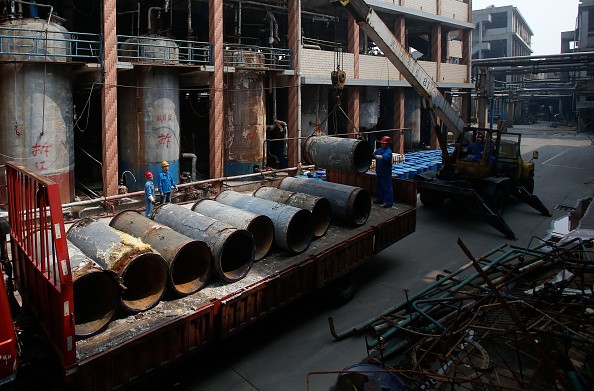Industrial output in China is showing signs of growth again, as the government presented data for the first two months of 2017, which show that the economy is reacting to government stimulus, according to an article in The Australian.
Data from the National Statistics Bureau (NSB) also revealed that consumption has slowed abruptly, the report said.
The data showed that in January and February, retail sales grew 9.5 percent, the lowest in 11 years, and down by 10.2 percent compared to same period last year and lower by 10.9 percent compared to December's rise in sales.
The report said that the sustained growth in the economy echoes Premier Li Keqiang's report at the National People's Congress ten days ago which said that this year, the government is aiming to achieve a gross domestic product (GDP) growth of "around 6.5 percent, or higher if possible".
The data further showed that factory output increased by 6.3 percent in January and February, higher than the 6 percent growth in December.
According to the report, the rapid rise of urban fixed asset investment at 8.9 percent indicate that the country's economic growth continue to depend on infrastructure and real estate surge driven by China's economic stimulus.
Fixed asset investment grew 8.1 percent last year while a recent report showed a 10 percent rise this year, the data showed.
Thus, the government prioritized the importance of ensuring employment in the following months leading to the five-yearly National Communist Party Congress in October.
NSB also said that China's production of nonmetal minerals, general equipment, chemicals, transport items and machinery increased faster than in December.
Car sales dropped by 1 percent in the same period of 2017 as car production slowed due to falling demand, the bureau said.
Compared with the 9.5 rise in December, home appliance sales grew 5.6 percent year-on-year, the report said.
Demand for electricity production rose 6.3 percent in January and February, after a 6.9 percent growth in December.
But investment in real estate continued, as it soared 8.9 percent in the first two months of this year, compared with only 3 percent growth in the same period last year.
According to analysts, Hong Kong-listed Chinese developers are set to announce an expected rise in their annual revenues at the end of this month. Private investment grew 6.7 percent in the first two months of 2017.



























